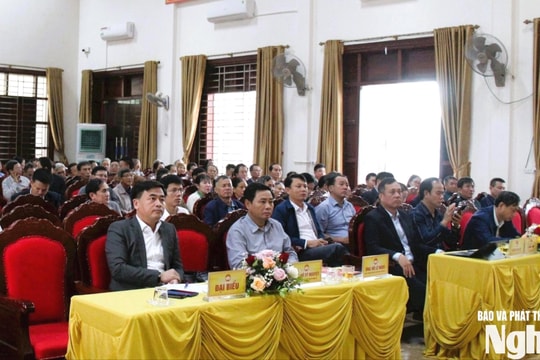Inadequacies in implementing the autonomy mechanism at public service units
((Baonghean) - State public service units still face many difficulties in implementing the work of arrangement and innovation according to the mechanism of autonomy in apparatus, organization and finance.
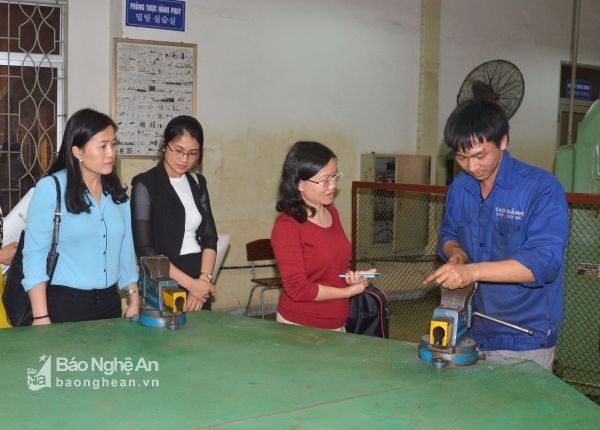 |
The Provincial People's Council's supervision delegation on the implementation of the autonomy mechanism at the Vietnam-Korea Technical Vocational College. Photo: Thanh Le |
Difficulties from the grassroots
After 3 months (from January 2017) of implementing autonomy in regular expenditure, the operation of Nghe An General Hospital is facing many difficulties. The current organizational structure of the hospital is not suitable for its functions, tasks, and operating conditions with 954 staff serving nearly 1,800 patients/day. Compared to the regulations of the Ministry of Health on the organization of a Grade I general hospital, the hospital is still lacking 9 clinical departments.
While the medical examination and treatment regime and policies still have many shortcomings and lack of uniformity, many problems arise during the implementation process. “The provincial hospital is the last line, with very few initial health insurance registrations (nearly 2,200 cards). The difference in medical examination and treatment prices between those with health insurance and those without health insurance causes great difficulties for the hospital when implementing financial autonomy. The hospital proposes to accelerate the implementation of price equality between those with health insurance and those without health insurance - Master - Doctor Ton That Hau - Deputy Director of the Provincial General Hospital proposed.
For Nghe An Obstetrics and Pediatrics Hospital, it has long been overloaded in both the number of patients and the work intensity of doctors and nurses. Doctor Phan Van Tu - Director of Nghe An Obstetrics and Pediatrics Hospital proposed: "If the State grants financial autonomy, it must also grant autonomy in the number of employees to the units. Currently, the human resources assigned to the units are still seriously lacking, inconsistent with the number of employees/number of assigned hospital beds; hospital beds go first, human resources do not follow. Nghe An Obstetrics and Pediatrics Hospital, the number of assigned hospital beds is 670 but the actual number of beds is 1,200. Meanwhile, the payroll is 400 people. This leads to patient overload and work frequency of workers".
In fact, most public service units only perform state management activities and have no source of revenue, making it difficult to exercise autonomy in human resources and finance as prescribed. For example, the Land Fund Development Center of Cua Lo Town has two basic tasks: compensation for site clearance and land exploitation in the town. The Center is a self-funded service unit that covers a part of its operating costs.
Currently, the center has 7 staff and 11 contracts; the autonomous funding source depends on 2% of the funding for compensation and site clearance. However, this funding source is limited and unstable. Therefore, the Land Fund Development Center of Cua Lo Town cannot implement the autonomous mechanism. Similarly, Cua Lo Radio and Television Station, which currently has 14 officers and employees, was transferred to the town in 2010 and since 2017, the province has no longer supported 70% of the funding, so it has encountered many difficulties.
Currently, Cua Lo town has 30 public service units, including 20 educational service units and 8 kindergartens, 5 secondary schools that have partially self-financed from tuition fees. Regarding autonomy, there are currently a number of units that can do it, such as schools, hospitals, committee guest houses, etc., which can be partially autonomous, but there are still many difficulties. Ms. Nguyen Thi Dung - Vice Chairman of Cua Lo town People's Committee said: "Cua Lo town has strongly directed the implementation of the autonomy mechanism, but it is basically not effective. Up to now, many units of Cua Lo town still have to ask not to implement autonomy because they do not have enough capacity and cannot generate revenue. Therefore, in my opinion, the implementation of streamlining the payroll and granting autonomy in funding needs to have appropriate steps, according to each type of unit, each region and area".
In addition, the central government's regulations are not yet synchronized, overlapping, and inadequate, causing confusion for the grassroots in implementation. "The Government has issued Decree 16/2015/ND-CP to comprehensively reform public service units; promote the delegation of autonomy and self-responsibility in terms of task performance, organizational structure, personnel, and finance. However, through the supervision of the Provincial People's Council, looking back at the progress of implementing autonomy of public service units, it can be seen that this process is still very slow, the number of units implementing autonomy is still modest" - Ms. Thai Thi An Chung - Deputy Head of the Legal Department of the Provincial People's Council commented.
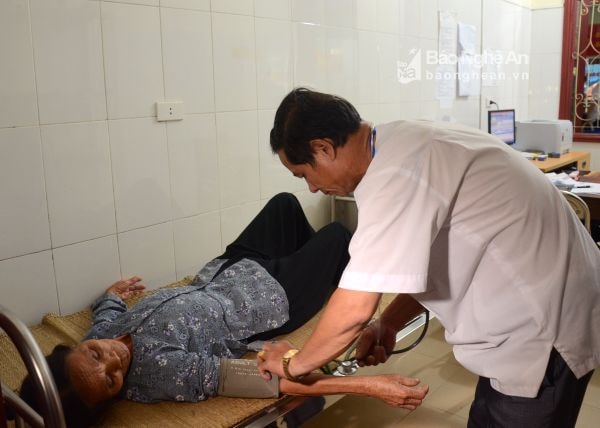 |
| The autonomous mechanism requires hospitals to improve the quality of medical examination and treatment. Photo: Thanh Le |
Inevitable trend
Financial autonomy is a mandatory requirement for public hospitals in the coming time, in the context of overspending on the policy of reducing regular expenditures. After studying Decree No. 16/2015/ND-CP dated February 14, 2015 regulating the autonomy mechanism of public service units, Nghe An Health sector is building a pilot model project. Nghe An Health Department has decided to choose Vinh City General Hospital as the first pilot unit according to level 2 (financial autonomy for units that ensure regular expenditures themselves).
In 2016, Vinh City General Hospital received 14 billion VND from the budget for salary and allowances. When implementing financial autonomy at level 2, this amount will no longer be granted, but the hospital will balance its revenue and expenditure. Doctor Nguyen Hong Truong - Director of Vinh City General Hospital said: "The hospital determined that implementing autonomy is a major breakthrough to improve quality in all aspects, ensuring the rights of the people. The hospital has also sent staff for training to improve their expertise and skills, learn to change the way of serving patients and working style...".
Mr. Ton That Hau - Deputy Director of the Provincial General Hospital of Friendship said: "Implementing the autonomy mechanism requires the hospital to change its attitude and service style and deploy specialized techniques, constantly improving the quality of medical examination and treatment so that patients choose it as the place to go for medical examination and treatment. Autonomy is an inevitable trend of hospitals, so the Hospital hopes that the Provincial People's Committee will soon approve the project "Autonomy, self-responsibility for performing tasks, organizing apparatus, personnel and finance for the period 2017 - 2019" for the Hospital to soon put into application and implementation".
Implementing the autonomy mechanism, according to the roadmap, the Government will convert a number of units from the administrative service unit model to a joint stock company. For example, Nghe An Guest House, from 2014 to now, Nghe An Guest House has been completely financially autonomous, every year Nghe An Guest House has made a profit, the revenue of each year is higher than the previous year, fulfilling its obligations to the State. It is expected that by the end of 2017, the Government will convert Nghe An Guest House from the public administrative service unit model to the equitization model.
According to the Department of Finance's assessment of the implementation of the autonomy mechanism in the province, currently, autonomous public administrative units only stop at being financially autonomous from the budget. Part of the reason is that the units are used to being subsidized by the State, when switching to the autonomous method, they will encounter many difficulties and obstacles, so the implementation is delayed. Many units have a mentality of dependence, still waiting for budget support, not willing to escape the "milk" of the budget.
Regarding the roadmap for implementing the autonomy mechanism in public service units, according to comrade Le Xuan Dai - Member of the Provincial Party Standing Committee, Permanent Vice Chairman of the Provincial People's Committee: "This is one of the important contents of the administrative reform program. Therefore, the province is interested in directing strongly, especially for the health sector. Autonomy is a good solution for units to have conditions to attract more resources to develop and train and foster staff. This is the solution to change the attitude and style of serving patients. At the same time, improve revenue sources, be proactive in finance so that they have the right to set payment standards to increase workers' income better, reduce budget pressure for the province. However, in the autonomy roadmap, the province will reduce budget support sources. Therefore, to gradually remove difficulties, the province will also prioritize supporting these units to invest in facilities so that the autonomy mechanism can be implemented sustainably".
| By the end of 2016, the whole province had 1,836 public service units. The results of the implementation of autonomy: 6 units self-insured regular expenditures; 1,780 units self-insured part of regular expenditures and 44 units with 100% budget guaranteed by the state budget. According to the roadmap in 2017, there were 8 public service units of the health sector self-insured regular operating expenses for the period 2017 - 2019 including: Provincial General Hospital; Nghe An Obstetrics and Pediatrics Hospital, Oncology Hospital, Endocrinology Hospital, Rehabilitation Hospital, Tay Bac General Hospital, Tay Nam General Hospital and Vinh City General Hospital. Currently, Vinh City General Hospital has a Decision of the Provincial People's Committee to grant autonomy, the remaining units are being submitted to the Provincial People's Committee for approval by the Department of Health. |
Thanh Le

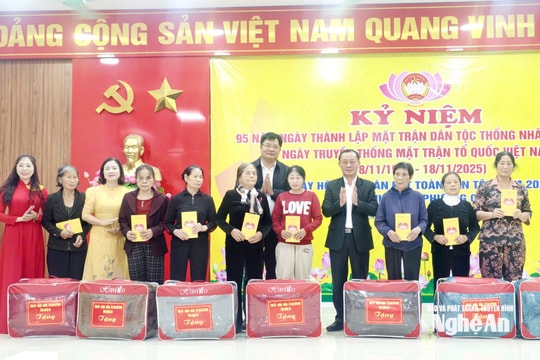
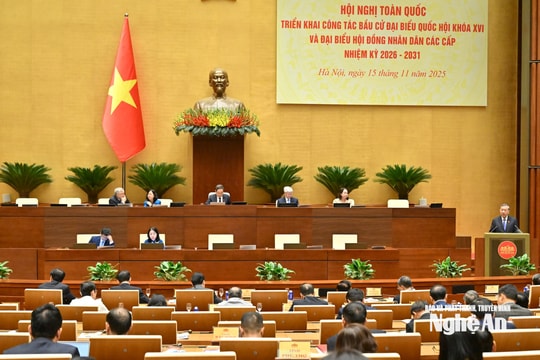

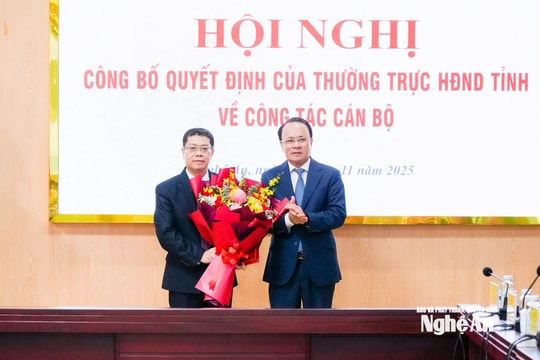
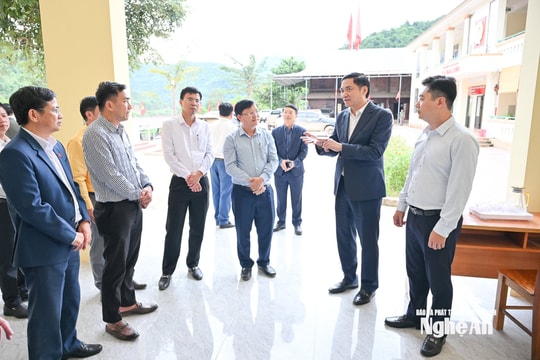
.jpg)
